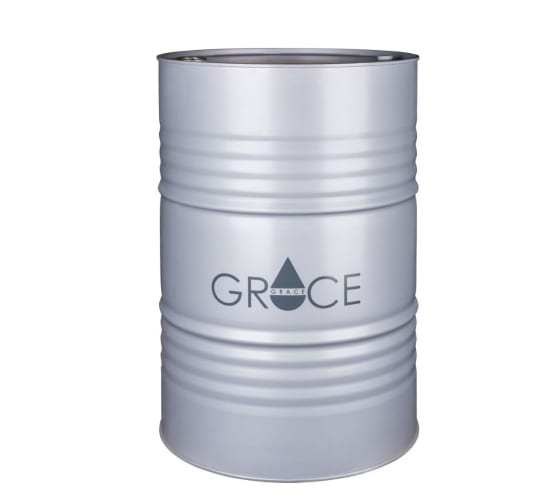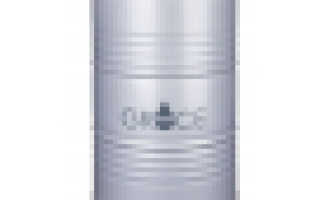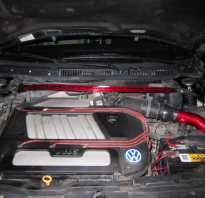Масло для 2-х тактных двигателей GRACE GARDEN BIO 2T 180 кг
Масло для 2-х тактных двигателей GRACE GARDEN BIO 2T 180 кг


- Тип: Двухтактное
- Вид: биоразлагаемое
- Объем: 216.5 л
Все характеристики
Спишите до 31094 р. бонусами Начислим 777 бонусов

Масло для 2-х тактных двигателей GRACE GARDEN BIO 2T 180 кг — биоразлагаемое моторное масло, предназначенное для любых наземных двухтактных двигателей с высокими мощностными характеристиками. При производстве используется уникальный пакет присадок для понижения дымности выхлопа. Предназначено для всех двухтактных двигателей сельскохозяйственной техники – бензопилы, газонокосилки, мотокультиваторы, триммеры и т.п. Подходит для использования в: экологических мотоциклах, мотоциклах для триала, дорожных мотоциклах, скутерах, мопедах, квадроциклах. Подходит как для раздельных, так и для совмещенных систем смазки двигателя. Смешивается с этилированным и неэтилированным топливом.
- Пониженная дымность выхлопа, что полностью соответствует требованиям JASO и ISO;
- Высокая степень «сгорания» отлично предохраняет от образования осадков и поддерживает чистоту поршневых колец;
- Уменьшение трения повышает срок эксплуатации масла;
- Высокая растворимость масла в бензине;
- Биоразрушаемость масла защищает от загрязнения окружающую среду.
Технические характеристики масла для двухтактных двигателей GRACE Lubricants GARDEN BIO 2T
- *Производитель оставляет за собой право без уведомления дилера менять характеристики, внешний вид, комплектацию товара и место его производства. Указанная информация не является публичной офертой
Нашли ошибку в описании?
 Россия — родина бренда
Россия — родина бренда Россия — страна производства
Россия — страна производства
Информация об упаковке
- Единица товара: Штука
- Вес, кг: 196,60
- Длина, мм: 570
- Ширина, мм: 570
- Высота, мм: 870
Документация
- GRACE Масло для 2-х тактных двигателей GARDEN BIO 2T 180 кг
Сервисное обслуживание
Поможем решить любую проблему с товаром
Устраним любую неисправность по гарантии. Срок указан без учета логистики
Обращайтесь за обслуживанием в авторизованные сервисы производителя
Что такое био двигатель
Language
- nn
- en
Influence of bio-components content in fuel on emission of diesel engines and engine oil deterioration (BIODEG)
BIODEG is an acronym for “Influence of bio-components content in fuel on emission of diesel engines and engine oil deterioration”. The project will provide knowledge of the consequences from use of biodiesel in combination with fossil diesel in two areas; 1) emissions and 2) effect on motoroil. Western Norway Research Institute has the responsibility fo rthe first area — emissions – through lifecycle assessments of the fuels’ emission of climate gases and compounds with human health effects. Biodiesel produced from biological oils from three different sources will be investigated; 1) rape seed, 2) sunflower seed and 3) fish.
The project will last for 33 months and is financed through the EEA-financing mechanism (EEA Grants). Collaborative partners are the coordinator Oil and Gas Institute of Krakow (IniG) in Poland and Abgasprüfstelle Fachhochschule Biel (AFHB) in Switzerland.
Publications:
Andersen, O., 2014. Fornybar energi har utilsiktede konsekvenser (Renewable energy has unintended consequences). Transportforum, 1:14–17.
Andersen, O., Manzetti, S. & Spool, D. van der., 2012. Bio-blending of diesel might impact exhaust toxicity. 7th International Conference on the Environmental Effects of Nanoparticles and Nanomaterials», The Banff Centre, Banff, Alberta, Canada.
Czerwinski, J., Stepien, Z., Oleksiak, S. and Andersen, O., 2011. Influences of biocomponents (RME) on emissions of a diesel engine with SCR. NAFTA-GAZ marzec 2011, ROK LXVII (3): 198–208.
Czerwinski, J., Stepien, Z., Oleksiak, S. and Andersen, O., 2011. Influences of Biocomponents (RME) on Regenerations of Diesel Particle Filters. Journal of KONES Powertrain and Transport 18(4): 65–75.
Andersen, O., 2011. Biodiesel kan skade DNA (Biodiesel can damage DNA). Forskning.no. Jan 13, 2011.
Andersen, O. & Manzetti, S., 2010. Biodiesel i autodiesel — «kvikk-fiks» på miljøproblem? (New types of exhaust emissions from biodiesel/fossil diesel blends). Forskning.no. Aug 18, 201.0
Manzetti, S., Andersen, O. & Czerwinski, J., 2011. Biodiesel, Fossil Diesel and their Blends: Chemical and Toxicological Properties. In Biodiesel: Blends, Properties and Applications. Energy Science, Engineering and Technology, Renewable Energy: Research, Development and Policies. Nova Publishers.
Gilpin, G., Andersen, O. & Czerwinski, J., 2010. The life-cycle-assessment of combined bio- and fossil fuel blends with exhaust after-treatment in heavy-duty diesel engines. In Euro Oil & Fuel 2010. Biocomponents in Diesel fuels — impact on emission and ageing on engine oil. Procne naukowe IniG. Crakow: Oil and Gas Institute Krakow.
Oleksiak, S., Stepien, Z., Urzedowska, W., Czerwinski, J. & Andersen, O., 2010. Influence of bio-components content in fuel on emission of diesel engines and engine oil detorioration. In Euro Oil & Fuel 2010. Biocomponents in Diesel fuels — impact on emission and ageing on engine oil. Procne naukowe IniG. Crakow: Oil and Gas Institute Krakow.
Stepien, Z., Urzedowska, W., Oleksiak, S., Czerwinski, J. & Andersen, O., 2010. Influence of Diesel fuels containing FAME on engine lube oil degradation and particulate matter (PM) emission. In Euro Oil & Fuel 2010. Biocomponents in Diesel fuels — impact on emission and ageing on engine oil. Procne naukowe IniG. Crakow: Oil and Gas Institute Krakow.
Andersen, O., Manzetti, S. & Spool, D. van der., 2012. Bio-blending of diesel might impact exhaust toxicity. 7th International Conference on the Environmental Effects of Nanoparticles and Nanomaterials», The Banff Centre, Banff, Alberta, Canada.
Czerwinski, J., Zbigniew, S., Oleksiak, S. & Andersen, O., 2011. Influences of Biocomponents (RME) on Regenerations of Diesel Particle Filters. International Scientific Journal of KONES. Institute of Aviation Al. Krakowska 110/114, 02-256 Warsaw, Poland, Krakow.
Andersen, O., 2011. Where do we go from here? Discussion. Research needs. Funding of the research. In Fighting both toxic exhaust and climate gas emissions from bio-blended diesel– Assessment of strategies. Feb 25. Sogndal, Norway.
Czerwinski, J., Zbigniew, S., Oleksiak, S. & Andersen, O., 2011. Combinations of Measures for Reduction of NOx & Nanoparticles of a Diesel Engine. In Proceedings From IV International Congress on Combustion Engines — PTNSS. IV International Congress on Combustion Engines — PTNSS congress 2011. June 16 – 17. The Development of Combustion engines. Random, Poland: Polish Scientific Society of Combustion Engines.
Andersen, O., Czerwinski, J., Oleksiak, S. & Spool, D. van der., 2010. Nanoparticle Emissions from Engines Running on Fossile Fuels Combined With Biofuels: A Simulation of a Toxicological Scenario. In Nano2010_Abstracts. Environmental Effects of Nanoparticles and Nanomaterials: Aug 22–26. Clemson University, South Carolina, USA: Clemson University, South Carolina, USA.
Czerwinski, J., Mayer, A., Stepien, Z., Oleksiak, S. and Andersen. O., 2009. Reduction of Emissions and Unregulated Components With DPF+SCR. Nafta-Gaz Journal 11: 829–838.
Czerwinski, J., Mayer, A., Stepien, Z., Oleksiak, S. & Andersen, O., 2009. Reduction of Emissions and Unregulated Components With DPF+SCR. In Nafta-Gaz Journal. DEXFIL International Conference 2009 “Reduction of vehicles particlulates emission – experiences and challenges”. Nov 18-19. Crakow, Poland: Oil and Gas Institute (IniG) and Association of the Oil and Motor Industries Cooperation CEC POLSKA, pp. 829-838.
Volvo XC60 Concept – six-cylinder bio-ethanol engine
The chosen power-train for the Volvo XC60 Concept is a six-cylinder, 3.2-litre bio-ethanol engine with All Wheel Drive. The engine offers the driver dynamic performance in the form of 265 horsepower and 251 lb/ft (340 Nm) of torque – with emissions of fossil carbon dioxide dropping by up to 80 percent when driving, compared with the same engine running only on gasoline.
At the moment, three of Volvo Cars’ nine models – the C30, S40 and V50 – are available on nine European markets with the bio-ethanol-powered FlexiFuel alternative. These cars all have a four-cylinder engine. “We believe that the FlexiFuel has great potential also for larger engine sizes and we are planning to expand our range of bio-ethanol-powered engines in the coming years,” says Magnus Jonsson, Senior Vice President, Research & Development at Volvo Cars.
The power train for the XC60 Concept uses the same six-cylinder, in-line petrol engine that was introduced in the new Volvo S80 in 2006. The engine has been optimised for E85 (85 percent bio-ethanol, 15 percent gasoline). This gives 265 horsepower and 251 lb/ft (340 Nm) of torque and acceleration from 0–60 mph in 8.2 seconds. Top speed is approximately 143 mph (228 km/h).
Fuel economy when running on E85 is 19.2 mpg (12.3 litres/100 km). This is a competitive figure for this type car, since the energy content of ethanol is 40% lower than that of gasoline. Bio-ethanol is also an entirely renewable fuel that can be produced from just about any biomass source, such as corn, wheat, sugar-cane and cellulose. This means that emissions of fossil carbon dioxide drop by up to 80 percent when driving on E85 bio-ethanol , compared with running the same car on gasoline. On top of the environmental benefits mentioned above, on many markets the car owner is compensated at the fuel pump through the lower price of bio-ethanol.
Bio-ethanol on the move
Renewable bio-ethanol is a fuel that is on the move in Europe and Volvo Cars has launched FlexiFuel models on several new markets this autumn and will continue to do so in 2007. Markets to get Volvo’s FlexiFuel cars outside Sweden are France, Norway, the Netherlands, Spain, the United Kingdom, Ireland, Belgium and Switzerland. Volvo Cars predicts sales of 7,000 FlexiFuel cars in 2007.
At present there are 23 plants producing ethanol in Europe and this figure is expected to rise to just over 60 in 2008. All told, about 720 million gallons (2.7 billion litres) of ethanol are produced annually within the European Union, primarily from sugar beet and various grains. Capacity is expected to increase threefold by 2008.
As of August 2006, the United States had 101 bio-ethanol plants in operation and with a capacity of 4.8 billion gallons per year. 39 bio-ethanol refineries are under construction and 7 more are expanding, which will add more than 2.5 billion gallons of capacity when complete. Ethanol is blended in 40 percent of the U.S. gasoline supply and there are already about 1,000 filling stations for E85 in the United States.
Environmental benefits
“One single renewable fuel will not be able to replace today’s fossil fuels, and the range of alternative fuels will probably be far wider in the future. Many different fuels and technologies are therefore being developed in parallel. Ethanol reduces dependency on fossil fuels and Volvo Cars’ FlexiFuel programme makes a vital contribution to our strategy of environmental sustainability,” concludes Fredrik Arp, President and CEO of Volvo Cars.
Environmentally Considerate Lubricants (ECLs, EALs) — Engine Oils



Performance grade
*ACEA B3, B4, E4, E7.
*API CI-4.




Fully synthetic environment-considerate multigrade oil for extremely heavy-duty diesel engines with long oil change intervals. Environmental compatibility:
Biodegradability acc. to OECD 301 B; > 60%, Water hazard classifications acc. to AwSV: WGK 1
Spezifikationen:
ACEA E6, E7, E9 (angelehnt)
API CJ-4, CK-4.
Leistungsniveau:
CAT ECF-3
MAN M 3477, M 3677
Mercedes-Benz 228.51
MTU Ölkategorie 3.1
Renault RLD-3
Volvo VDS-4







Synthetic lowSAPS diesel engine oil with excellent smooth-running properties (FE – Fuel Economy) for modern environment considerate diesel engines up to EURO 6 classification. Biodegradability: OECD 302 C; > 40%.
Spezifikationen: ACEA E6, E7, E9. API CJ-4/SN. CAT ECF-3, ECF-2, ECF-1-a. JASO DH-2. Leistungsniveau: Cummins CES 20078, 20081; DAF; Detroit Diesel DDC 93K218; MAN M 3271-1; Mercedes-Benz 228.31;
Deutz DQC IV-10 LA; Mack EO-O Premium Plus. MAN M 3477, M 3677. MB-Approval 228.51, 235.28. MTU Ölkategorie/oil category/catégorie d’huile 3.1. Renault VI RLD-3. Scania LDF-4. Voith Retarder Class B. Volvo VDS-4.
Why Should You Buy Bio-Oils or Green Lubricants from PANOLIN?
Whatever you call them – bio oils, bio lubricants or green lubricants, these environmentally ‘acceptable’ lubricants (EALs) are increasing significant in their use, particularly when water is encountered. They have been used and approved in many countries, each issuing certificates of environmental compatibility. The emergence of the European Ecolabel has, in one certification, brought together a European-wide vision of many environmentally-friendly products of which lubricants.
Bio-oil is quickly becoming a popular fluid choice for every type of machinery — for good reasons. Rapidly biodegradable hydraulic oils are an integral part of sustainable environmental thinking and make an effective contribution to protecting the environment. The increasingly scarce and expensive crude oil reserves provide a further economic justification that lubricants from alternative sources can be used to a greater extent.
However, one of the biggest leaps of environmental legislation related to lubricants in recent years was when the US Environmental Protection Agency introduced its second Vessel General Permit in 2013 changing one key word – MUST, instead of SHOULD.
Every ship operator navigating in or entering US waters MUST use Environmentally Acceptable Lubricants in all applications with oil-to-sea interface, for example across sealing systems and, in ‘open’ (deck) applications where rainwater and sea spray can wash grease and oil into the water.
Biologically safe oils are often both biodegradable and non-toxic, so leaks and spills are more readily processed by nature with little or no harm to flora and fauna. While this might be true, the use of bio-oil in place of standard hydraulic fluid does not provide a hall pass for institutions to ignore their spills.
While a slow leak at a fitting dripping vegetable-based hydraulic oil will cause little concern, large spills still have to be reported. The advantage of using bio-oil is that environmental fines and clean-up costs are often reduced. However, one must consider that oil spill cleanups and fines can cost hundreds of thousands of dollars. The extra costs of the bio-oil could be offset by a single future spill, and besides, protecting the environment from damaging and toxic hydrocarbons is a no-brainer. High effort should be expended in reducing the frequency of oil spills, especially near water. However, if a regrettable spill does occur, you will be glad to have been using bio-oil.
Initially a negative point lies in the supposedly high prices in the beginning, especially if they were developed for high performance. However, if the calculation is run over the entire service life of the bio-oil, a positive picture emerges. Due to the much longer running times and the reduced number of necessary change intervals, there are high-cost advantages over the entire lifecycle of the product. Also from a technical point of view, bio-oils have an advantage today and lie in the high temperature and aging stability, very good wear protection and good compatibility with sealing materials, coatings and hoses.
More recently, in January 2018, the IMO Polar Code came into force, stating that ‘discharge into the sea of oil or oily mixtures from any ship are prohibited’, as are chemicals, sewage and garbage, unless meeting stringent controls.
The concern/understanding of environmental issues and the willingness of companies to strive to be as environmentally considerate as possible is growing significantly.
With critical pieces of vessels’ propulsion, steering and stability equipment, dredging/offshore equipment and portside passenger/freight handling machinery relying on the performance of EALs for environmentally sensitive areas — or to comply with current (and future) legislation — the right selection of EALs is essential. For many applications, they have become indispensable from an ecological point of view. The saturated synthetic esters have proven to be suitable for long-term use and therefore do not represent an additional economic burden for the user — on the contrary. Bio-oils are also are also economically advantageous today.
Benefits you get when you buy bio oil or green lubricants
• Bio oils are trendy. Public awareness in the 21st century has increased, and many decision makers are now aware of the problems that result from the use of mineral based oils. On top of that, international environment legislation urges companies to attach greater importance to sustainability. By buying bio oil instead of minaral-based oils, one can easily fulfil the highest environmental requirements.
• PANOLIN products are especially economical since they stand out with great longevity.
• PANOLIN is specialized in the production of lubricants used in the heavy-duty realm. All in all, if one buys products from PANOLIN, one gets an ecofriendly product of highest quality.
Why buy bio oil?
· Due to their longevity PANOLIN lubricants are affordable compared to mineral based oils. More and more companies and stakeholders become aware of green economics. More and more companies are willing to play their part in conserving the environment hence buy bio oil/green lubricants instead of mineral based oils.
· Bio-oil products outperform industry standards: lower operating temperatures, higher speeds, increased loads and improved friction modification. All these performance enhancements add significant value to customers’ operations.
Why PANOLIN?
You should always consider purchasing your bio oil from PANOLIN. The company offers a wide range of green products if you want to buy bio oil. PANOLIN has been endorsed by numerous customers. The new giant flood gates of the Panama Canal, the London Eye Ferris wheel or Switzerland’s Rhaetian Railway. They all bank on the rapidly biodegradable lubricants manufactured by PANOLIN. The latest test by Bosch-Rexroth, one of the world’s leading suppliers of drive and control technologies, shows that these products not only fulfill the strictest environmental requirements, but also pass every stress test with flying colors.
Bio oil products from PANOLIN exhibit very good thermal oxidation resistance and shear stability, have excellent additive solubility and low temperature ‘pour point’ performance characteristics and meet all the current environmental requirements. With their long performance life and consistency of properties, fully saturated synthetic esters reduce operational costs by reducing maintenance requirements and enhancing equipment performance and life and ensure critical pieces of safety equipment are fully operational should the worst happen, in the worst of conditions.
PANOLIN bio products meet high ecotoxicity requirements and are certified with environment labels such as the EPA label from the US, ABS Type Approval, Cefas, HOCNF Labels, Korea Eco Label, The Blue Angel/Der Blaue Engel, Swedish Standard, USDA BIO PREFERRED, Rina Green plus, Prijatelj Okolisa, Ekologicky Setrný Výrobek or the EU Ecolabel.
The PANOLIN Group emerged from PANOLIN AG, founded in 1949. The Group is an independent Swiss family business domiciled in Madetswil near Zurich, with an own production facility at the same location. The development, production and marketing of lubricants are certified to ISO 9001 and ISO 14001 as well as ABS (American Bureau of Shipping). Innovation, flexibility, competence and close relations with our customers make the PANOLIN Group a high-performance partner for all your lubricant requirements.



 Россия — родина бренда
Россия — родина бренда
